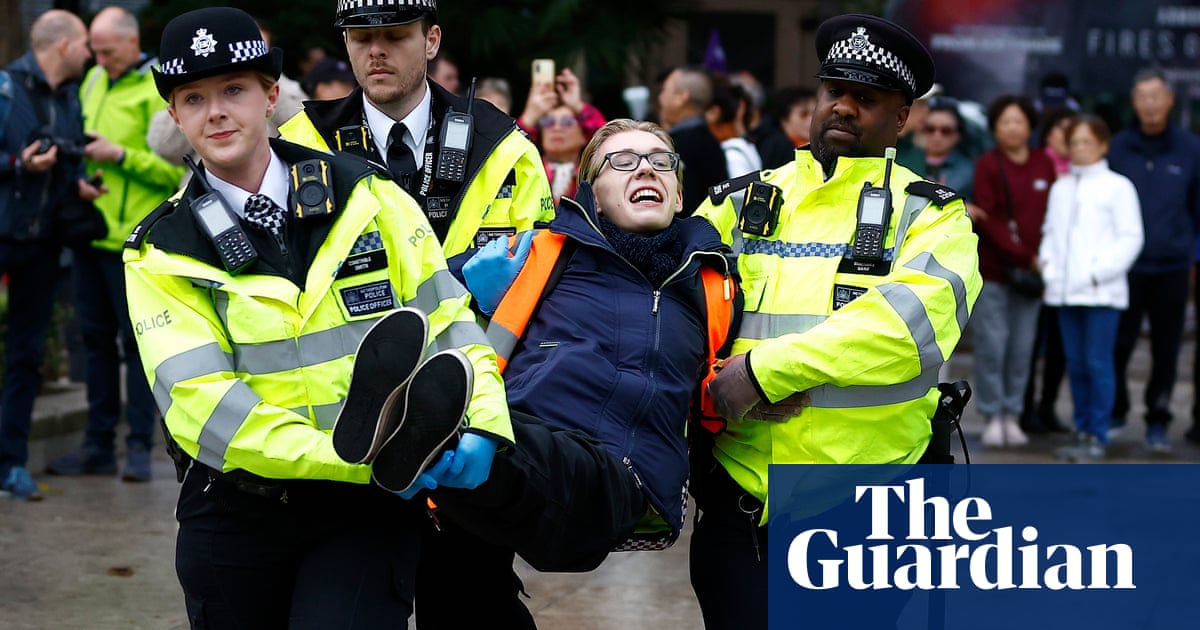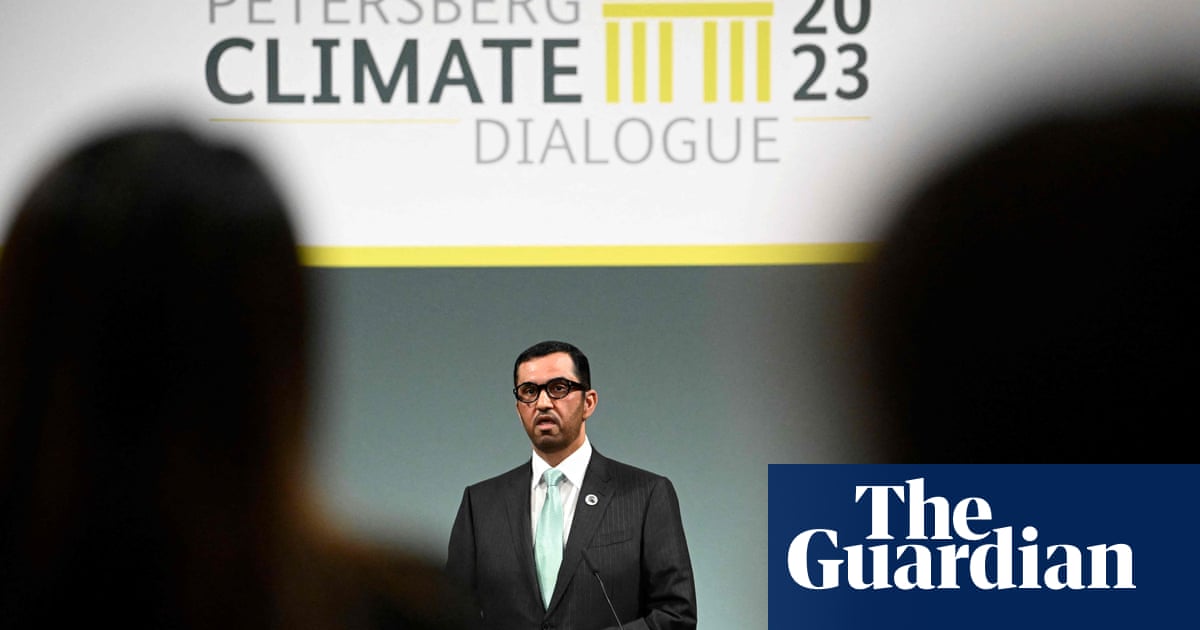
Police have arrested more than 60 climate activists taking part in a slow march outside parliament in the first use of draconian new anti-protest powers.
The Metropolitan police used section 7 of the Public Order Act 2023, which bans any act “which interferes with the use or operation of any key national infrastructure in England and Wales”, to order an immediate end to a Just Stop Oil protest on Monday morning.
After forming a line and attempting to direct protesters off the road, police began making arrests, according to Just Stop Oil. Pictures and video circulated by the campaign showed officers kneeling on and handcuffing protesters, and carrying them into waiting police vans.
A spokesperson for Just Stop Oil said the campaign would not be deterred by the police’s response, and its supporters would continue until its demand – a moratorium on new oil and gas licences – was met.
“Just Stop Oil supporters are willing to slow march to the point of arrest today and every day until the police take action to prosecute the real criminals – the people who are facilitating new oil and gas when they know that to do so will kill hundreds of millions of people,” the spokesperson said.
Just Stop Oil said 65 of its supporters began marching in the road circling Parliament Square at 10am. “At 10:10am, a number of Metropolitan police arrived and began pushing the Just Stop Oil supporters back and forming a chain across the road,” the campaign said in a statement.
“Immediately the police began making arrests, arresting 65 people by 10.37[am]. Officers dragged peaceful Just Stop Oil supporters across the pavement, kneeling and sitting on them to detain them.”
Posting on X, formerly known as Twitter, the Met said its officers had arrived within four minutes of receiving a report of the protest and began making arrests. The force said it arrested 61 people, all of whom were still in custody on Monday afternoon.
The Met’s use of the new Public Order Act’s powers on Just Stop Oil’s marches marks a significant escalation in its efforts to tackle the climate protest campaign. Previously the force had used section 12 of the old Public Order Act, which gives senior officers the power to place conditions on a protest march.
Netpol, which monitors protest policing, wrote on X: “Earlier this year the Met relied on powers to impose ‘conditions on public assemblies’ but now is opting for the new offence under the Public Order Act 2023 of ‘interference with use or operation of key national infrastructure’ (ie the road network).
“This may not seem immediately obvious: but if you decide to protest on public highways without prior permission, then police may arrest you for interfering with ‘key national infrastructure’. Not every time – but more likely if you’re part of a group seen as ‘aggravated activists’.
“This will immediately shut down a protest and criminalise everyone involved. That is what makes these new offences so repressive.”
Jun Pang, the policy and campaigns officer at rights group Liberty, said: “The use of this new power is a dangerous escalation of the attack on the right to protest, with protesters potentially facing up to a year in prison for standing up for what they believe in.
”We all have the right to make our voices heard on issues that matter to us, but these arrests are a clear attempt to criminalise people for exercising that right. The government, in passing these new laws, has tried to make it even harder for the public to stand up to power. Protest is a fundamental right, not a gift from the state.”












